So, how are you guys? I hope you are utilizing your time well, as time is money. Today we are going to continue the previous topic: "Time". We will be diving more deeply into ‘time’ and will discuss some of its mind blowing mysteries. In today's episode we'll deal with questions like: "Does time pass equally for everyone?", "What will happen if we travel at the speed of light?", "Is time-travel possible?"
Do we all feel time the same way?
 The inconsistency of Time
The inconsistency of TimeBefore twentieth century, science considered time to be absolute and pretty universal: everyone and everything in the universe felt time the same way. It was believed that if we put two identical clocks at different parts of the universe they would continue to agree with each other forever.
Newton also believed in the concept of absolute time and space which provided a theoretical foundation to Newtonian mechanics. In Principia Mathematica, he writes:
"Absolute, true and mathematical time, of itself, and from its own nature flows equably without regard to anything external..."
According to Newton, absolute time exists independently of any observer and progresses at a consistent pace throughout the universe. [1] He believed that humans are only capable of perceiving relative time, motion of objects and heavenly bodies relative to other.
But later scientist like Gottfried Leibniz, George Berkeley etc. did not agree with his views. Gottfried Leibniz was of the opinion that time made no sense without the relative movement of bodies. George Berkeley argued that without a point of reference, a sphere cannot be conceived to rotate in an otherwise empty universe.
 Albert Einstein | Emaze
Albert Einstein | EmazeLater on Albert Einstein made a more descriptive observation of the flow of time through his theory of relativity. Einstein's theory of relativity suggested that time and space and not constant as we observe in our day to day life. They tend to change according to the position and velocity of the object and of course our frame of reference. Einstein's special theory of relativity connected both space and time and showed that both are dependent on the motion and position of the frame of reference.
Einstein famously predicted that moving clocks run more slowly. If an astronaut takes a trip to a nearby star by traveling close to the speed of light, he will experience less time than those felt back on Earth. Let's assume that the astronaut feels just half the rate of time as experienced on Earth. So at that speed everything in the spacecraft will be slowed by a factor of '2', when observed from Earth. But the astronaut won't feel that slow motion effect in his spacecraft. This is because, not only the clocks and movement of things will slow down but also all the biological processes like heartbeat, breathing etc. of the astronaut will slow down. Even his thinking process will slow down. So for him everything happening in the spacecraft will appear perfectly normal. This process of variation of speed of time for two observers is called 'time dilation'.
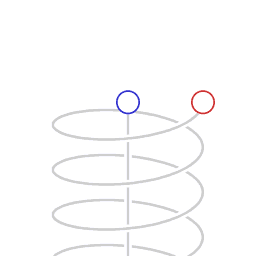
Time Dilation : With respect to the blue clock, the moving red clock is perceived as ticking slower | Wikipedia
But you might think, if the speed of time is half for the astronaut, then he may know that his time is running slow because he will reach his destination in only half the expected time. But that won't happen, because there is a second effect of the relativity theory – when the astronaut will be travelling at a speed closer to the speed of light, he will observe that the distance between Earth and the star have squashed up, so he has to cover only the half of the predetermined distance. Sounds really weird, huh! But this is the effect of relativity. It affects not only time but also distance. This squashing of distance is called 'length contraction'.
So, the observer on Earth will say that time is running slow for the astronaut while the astronaut will argue that, it's not the time but the distance that has been squashed up. It cannot be denied that both are true from their perspectives. This is the weirdness of time and relativity.
These are also experimentally proved by the use of highly accurate atomic clocks. Researchers of the US National Institute of Standards and Technology in Boulder, Colorado, monitored two atomic clocks placed a foot apart from each other vertically. One at sea level and another one foot higher. They found that both the clocks read different time, although the difference was very minute, but it was there. Time really ran faster for the higher clock. [2] It testifies Einstein's prediction that mass (or maybe gravity) affects time.
Einstein also accepted the idea of Maxwell that light travelled at a constant speed in vacuum (it may change with change in medium). It won't change with the change of frame of reference or observer. It's impossible for anything in the universe to go faster than the speed of light (3.00 × 108 m/s). Einstein took the speed of light as a constant entity and with respect to that he tried to observe the universe and to predict its behavior. But why do we have the speed limit in this universe? Let's find out.
Why we cannot go faster than light?

Maximum speed limit of the universe | Pexels
Physicist James Clark Maxwell suggested that light was vibration or an electromagnetic wave which travelled at a constant speed in vacuum. [3] But more than 100 years earlier Newton had proposed his Laws of Motion which showed that speed of an object would differ depending on who is measuring it and the relative motion of the observer. But there was a problem in applying Newton's law to light. In Maxwell's equations speed of light is constant for given medium. There is nothing that can allow the speed of light to be different for different people even if they are moving at different speeds relative to light. It is really bizarre, if we think about it.
Let's do a thought experiment which will make the thing clearer. Suppose you are sitting on your couch and you turn on a flashlight. To you, the light from the flashlight is zooming away from you at the speed of light.
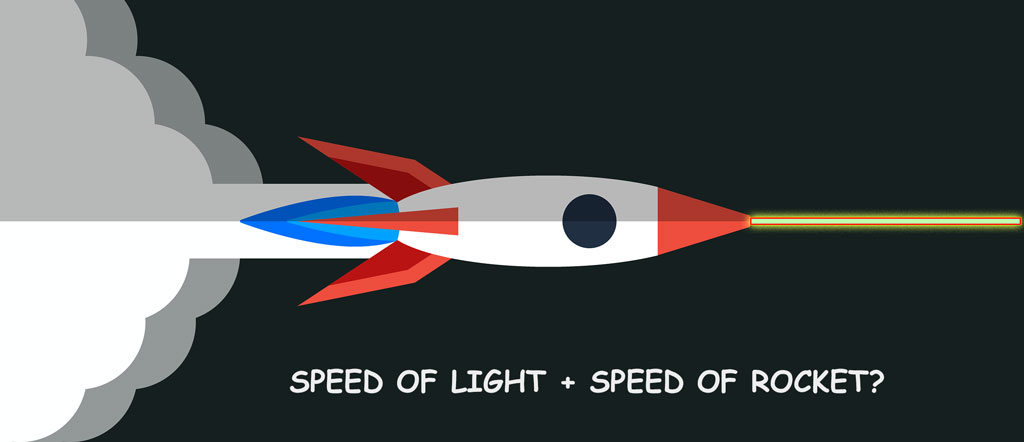
Flashlight fired from the top of a fast moving rocket | Freepik
But what if we strapped your couch to the top of a rocket and the rocket blasted away and started to move really fast? What happens now when you turn on the flashlight pointing towards the front? Does the light move at "the speed of light" plus "the speed of the rocket"?
The answer you get is "No". In that situation also, light moves at its actual constant speed not only for you, but also for any other observer watching you from the outside of the rocket. For this to happen something has to be different. In Einstein's special relativity, space and time become stretchy and variable to keep the speed of light constant at all times and for all observers.
To make sense of all this, we have to go back to the idea of time as the fourth-dimension of space-time. It helps us to imagine that the speed limit of the universe applies to your total speed through both time and space.

Slower movement through space, faster movement through time | Freepik
If you are sitting on your couch on Earth, you have no speed through space relative to Earth, so your speed through time can be high.
But if you are on the rocket moving close to the speed of light relative to earth, your speed through space is very high. So, in order to keep you within the max. speed limit of the universe your speed through time has to decrease. So your clock will measure less time relative to the clocks on Earth.

Faster movement through space, slower movement through time | Freepik
Thus, the universe will never let us cross the speed of light. Even if we try to go faster, it will slow down our time to keep our speed inside the limit.
There is yet another interesting result that we get from Einstein's special relativity. When something speeds up, its mass increases relative to its mass at rest. Some part of the energy used in speeding up the object is converted into mass. So you might think, "So my car will be more heavy when I drive it at high speed?" Not really. This is because the mass increase at normal speed is negligible, you will lose more of your petrol (or battery) than any mass gain.
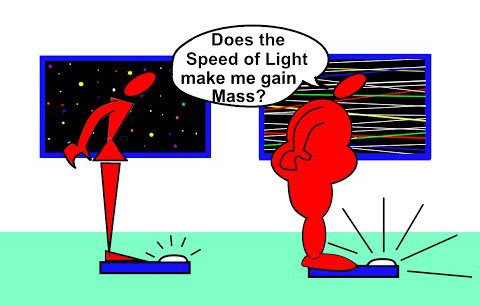
What you may think. :D
This result is only effective when an object moves close to the speed of light. At that speed, any extra energy you put into the object does not make it faster but just increases its mass. This explains why nothing can travel faster than light. Basically mass and energy are the same thing but that is another story.
Can we travel back in time?
We know a little about the universe and much is left to know. Many things that were once regarded as impossible, are now possible with the development of scientific knowledge. And many things which are now considered to be impossible, may be possible in future with further development in science and technology.
But in the case of time-travel, modern physics is a certain as it can be that this is not possible. Any method through which we can travel backwards in time quickly leads to paradoxes that violate our deep and basic assumptions about the workings of the universe.
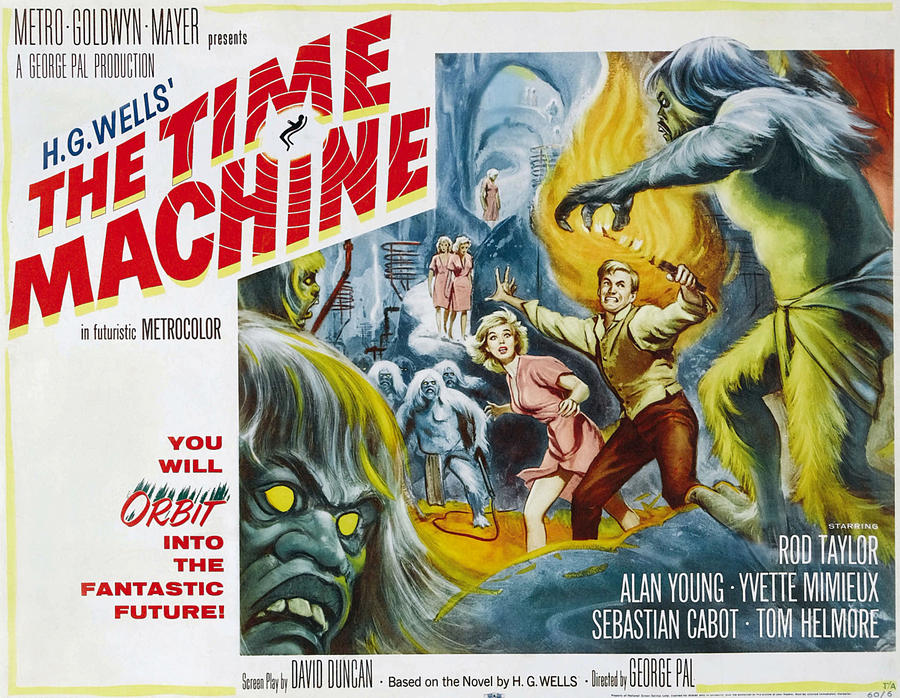
Poster of the 1960's film, The Time Machine | Wikipedia
Many science fictions like H. G. Well's "The Time Machine", show that aliens or advanced humans are able to perceive time as a spatial dimension and move back and forth over it, just like we move on the ground or in the space. They are really fun stories, but physics, which is ruining fun since ancient times, find serious problems in them from physics perspective.
First, moving backwards in time can break causality. If that happens universe will make no sense. 'Effect' will happen before the 'Cause'. Your credit card will be billed before you buy anything. You will have your food before you prepare it. So it's a really a big deal for a normal human being and animals.

Grandfather Paradox
Without causality, nothing really makes sense. For example, if anyone makes a time machine, travels back to his past when his grandfather was a child and kills him. Then there will be no chance of the birth of his father and then he himself should not exist, so no time machine was built and no journey to past could have happened. This is known as 'grandfather paradox'. [4] There are also many other paradoxes like bootstrap paradox, predestination paradox which create issues with time travel. So the moral of the story is that time-travel to past is not possible because it violates causality.
However, it seems to be possible to travel into the future (actually at every moment we are travelling towards the future). As Albert Einstein once suggested that to travel into the future we must approach the speed of light and to travel into the past we must surpass it. The current record holder is Sergei Krikalev, he has reached a grand total of 0.02 seconds in future by travelling about 337 miles in orbit at some 28,083 kmph. So, he is now ahead of us in time by 0.02 secs.
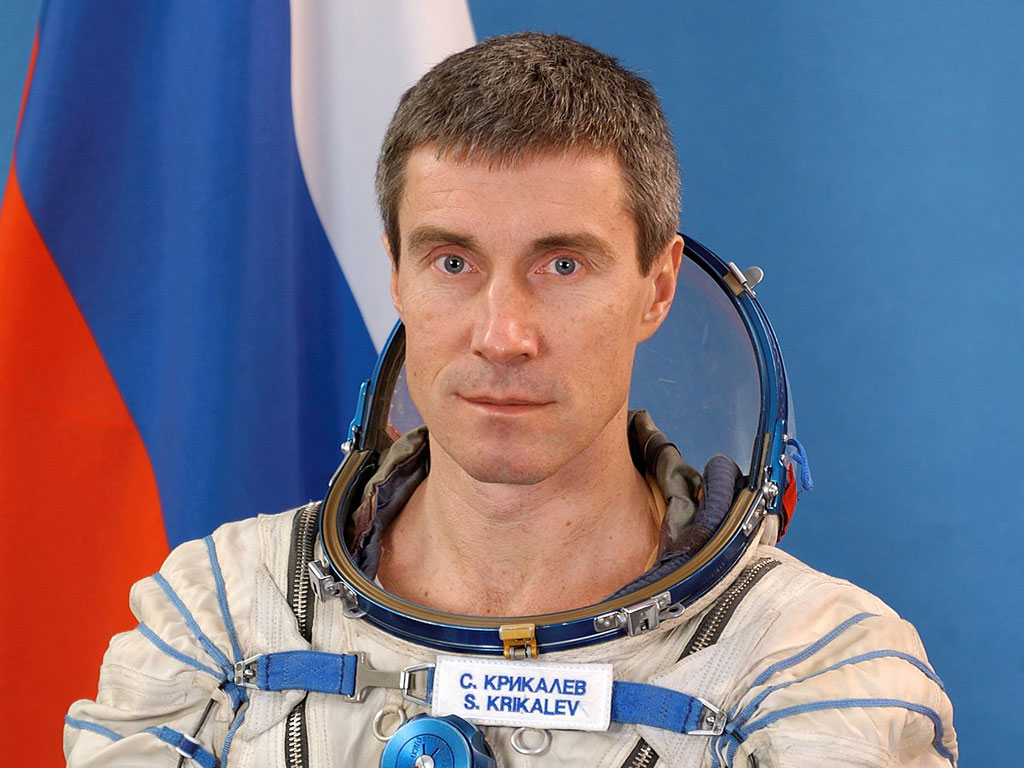
Sergei Krikalev | Wikipedia
So we see time travel to the future is relatively possible with scientific development. But even if we travel to the future we'll not be able to return back to the past. That will be a one-way journey without any possibility of return.
Although, the present physics negates the possibility of travelling back in time, but some physicists suggest that, person travelling backwards in time will actually travel to a parallel universe. Thus his activity in that universe will not affect the present of the universe, from where he left off. This parallel universe theory may solve the inconsistencies in time travel due to numerous paradoxes.
But what is the actual nature of the Universe we never know. Does parallel universe ever exist? Even if we travel to a parallel universe, will we be able to return back to our original universe?
Time to Conclude

Futureland - an imagination | Pexels
These questions about the nature of time are very deep, and the answers have the potential to shake the very foundations of modern physics. But while these questions about time are exciting to think upon, it also makes them very much difficult to tackle.
However, science will never stop its efforts to unveil the secrets of time. The younger researchers and more enthusiastic, and are willing to wade into such risky territory.
Perhaps we will make progress by working directly on the difficult topic, or perhaps we will stumble upon a crucial insight when working on a different problem. Only time will tell.
Phew! Finally, it's over!
So, what's your thinking about time? Have you got any new idea about time which can help our physicists, who are breaking their heads for this timeless question?
Do let us know through your comments. ;)
- Source : http://thinknitesh.com/what-is-time/ (an excerpt from my blog)
I will be very much happy if you UPVOTE and RESTEEM this post.
This will help me to buy more material for next posts and provide me the worth of my hardwork.
References
[1] - https://en.wikipedia.org/wiki/Absolute_space_and_time
[2] - http://www.independent.co.uk/news/science/einsteins-theory-is-proved-and-it-is-bad-news-if-you-own-a-penthouse-2088195.html
[3] - https://en.wikipedia.org/wiki/Speed_of_light
[4] - https://en.wikipedia.org/wiki/Grandfather_paradox
[•] - Jorge Cham and Daniel Whiteson (2017) : We Have No Idea
Previous Episodes of the Series
- Simple Question #1 - Why do we Dream? What is its purpose?
- Simple Question #2 - What is Life? Why does it exist at all?
- Simple Question #3 - How big is the Universe? What is its Shape?
- Simple Question #4 - Should we eat Meat? Why and Why Not?
- Simple Question #5 - What is Time? Will it ever stop or reverse?
Follow me @nitesh9



--- thinknitesh.com ---
This sentence summarizes so well why I love being part of the collective scientific journey of discovery :D
Great post! As @lemouth pointed out you should be a bit more careful about the use of images. Happy to have come across your great writing though!
Steem on
Downvoting a post can decrease pending rewards and make it less visible. Common reasons:
Submit
Thank you so much. Yeah that's why I too love science, there are many mysteries in front of our face but we are not able to solve them.
There is more excitement in the research than the final result. :D
Downvoting a post can decrease pending rewards and make it less visible. Common reasons:
Submit
Downvoting a post can decrease pending rewards and make it less visible. Common reasons:
Submit
More than just the final result indeed :)
Downvoting a post can decrease pending rewards and make it less visible. Common reasons:
Submit
This is an amazing post and a must read...I was always fascinated by the Relativity and Time dilation during my High School days. Time travel would be an amazing thing. Posters Reminded me of the movie Back to the Future series.
Downvoting a post can decrease pending rewards and make it less visible. Common reasons:
Submit
Am happy that you liked it. Thanks bro. :)
Downvoting a post can decrease pending rewards and make it less visible. Common reasons:
Submit
Nice article!
Actually van Stockum and Gödel have discovered sulutions to the Einstein equations which admit closed spacelike loops in spacetime, so trajectories which take you back to your starting point and time. In very theoretical terms the possibility of time travel exists if you just consider general relativity :D
Downvoting a post can decrease pending rewards and make it less visible. Common reasons:
Submit
Yeah read about that. It's really astonishing if we imagine space-time to be curved in a loop.
Downvoting a post can decrease pending rewards and make it less visible. Common reasons:
Submit
Fucking epic, time dilation is one of my favorite concepts and you wrote this up nicely. The workings of our universe are absolutely crazy, much stranger then any fiction novel.
Edit to expand: causality is also a very facinating topic. Did you know we have not made a law stating there can't be an effect without a cause? Its pretty mind boggling actually but there are only two possibilities here. Either there can be an effect without a cause, or all effects have a cause, simply because the universe exists forever. Like an infinite series of falling dominoes that nobody tipped over.
Both options seem equally absurd : /
Downvoting a post can decrease pending rewards and make it less visible. Common reasons:
Submit
You may consider big-bang for that. It's cause is unknown, but we are here due to it's effect. :D
Downvoting a post can decrease pending rewards and make it less visible. Common reasons:
Submit
Hi Nitesh,
This is a very good post. Please be careful when using comics from Jorge Cham's book. They are copyrighted. If I were you, I would replace them by free images available on the web.
Downvoting a post can decrease pending rewards and make it less visible. Common reasons:
Submit
Thanks for pointing out. I am working on it. Trying to find similar free images...which will do the job.
Will replace as soon as I find new set of images.
Downvoting a post can decrease pending rewards and make it less visible. Common reasons:
Submit
WOW....very interesting facts that we never do take the time to realize the true facts...great post. Upvoted and Resteemed and following you now.
Downvoting a post can decrease pending rewards and make it less visible. Common reasons:
Submit
Thank you so much. :)
Downvoting a post can decrease pending rewards and make it less visible. Common reasons:
Submit
You welcome :)
Downvoting a post can decrease pending rewards and make it less visible. Common reasons:
Submit
First the JRE podcast with Sean Carroll on quantum mechanisms. Now time-dilation and relativity. I am so sorry brain!
Downvoting a post can decrease pending rewards and make it less visible. Common reasons:
Submit